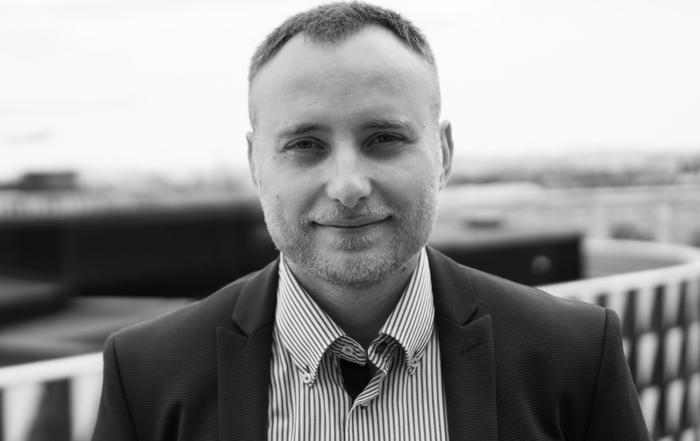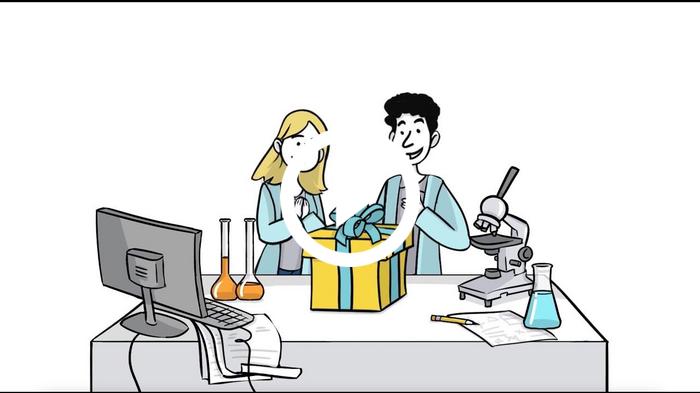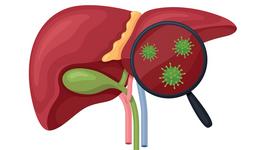Long, Pure, Complex, Scalable and Multifunctional Single-Stranded DNA – A Close-up Look at Moligo Technologies
CMN Intelligence - The World’s Most Comprehensive Intelligence Platform for CRISPR-Genomic Medicine and Gene-Editing Clinical Development
Providing market intelligence, data infrastructure, analytics, and reporting services for the global gene-editing sector. Read more...

- Hi Cosimo. I’m looking forward to learning more about Moligo Technologies. Let’s start with the company’s origins. When and how did Moligo emerge?
Moligo was founded in 2019 as a spin-out from The Karolinska Institute in Sweden. I was a postdoc there at the time, focused on developing new tools for enzymatic DNA synthesis that eventually became the core technology behind Moligo.
DNA synthesis is not a new field, but we realised that current technologies, which are predominantly based on chemical solid-phase synthesis, have many limitations, for example, the length and complexity of the DNA molecules that can be produced, impurities and lack of scalability.
I was mostly producing DNA for nanotech applications, but with the quality and scalability we were seeing, the clinical applications of our enzyme-based technology became clear. At the same time, CRISPR-based clinical trials were emerging, and the need for long, pure and scalable DNA molecules was becoming urgent.
To address those needs, I co-founded Moligo Technologies alongside my then supervisor, Professor Björn Högberg at Karolinska and Simone Codeluppi, who was an assistant professor at Karolinska at that time. We have since commercialised the technology and the team continues to grow.
Pure, scalable DNA sequences for clinical applications
- How does Moligo’s DNA synthesis technology compare to competing technologies?
Moligo has developed an in vitro DNA synthesis workflow based on rolling circle amplification. Our approach is solely based on viral DNA polymerases that have evolved in nature over billions of years, some of which have been engineered to be more efficient and more precise.
In our workflow, DNA is synthesised under isothermal conditions, i.e., the reactions take place at a constant temperature. Other companies have developed enzymatic methods but these are often based on PCR reactions that inherently require temperature ramping, which is time-consuming, costly and reduces scalability.
Isothermal rolling circle amplification
Isothermal rolling circle amplification or RCA was first described in 1998 by researchers at Yale University School of Medicine. In contrast to PCR, which requires two primers and repeated cycles of alternating temperatures, RCA can occur at a constant temperature and can rapidly generate billions of copies of a circular DNA template in 90 minutes using a single primer. The underlying principle of RCA is that a suitable DNA polymerase with high processivity and strand displacement ability continuously adds single nucleotides to a DNA or RNA primer that is annealed to a circular template. This results in rapid synthesis of long linear chains of tandem repeats of the original circular template sequence.
Our patented technology is also distinct from de novo enzymatic DNA synthesis based on terminal transferases, which has been adopted by many new companies. In fact, rather than writing DNA base-by-base, our method can be compared to injection moulding, whereby we assemble a sequence-verified monoclonal production template (our mould), and single-stranded DNA molecules are mass-produced directly from this mould. This is a crucial difference with our approach, since it allows us to truly produce DNA at industrial scale for large DNA studies and to meet the demands of clinical applications. We currently provide DNA in batches at multi-milligram scale and we are optimising our scale-up to provide batches at gram scale.
In the video animation above, Moligo explains how they overcome the limitations of large scale production of ultra-pure DNA - which could transform the future of genetic medicines. Video shared with permission from Moligo Technologies.
- In what fields are Moligo’s products used?
Our products have been used in broad applications including research, molecular diagnostics and therapeutics, but our primary focus is the cell- and gene therapy field.
The majority of the cell- and gene therapies approved so far are based on viral delivery vectors, and these are largely inaccessible to patients because of the high costs of manufacturing and testing to meet regulatory demands.
Moligo is democratising gene-editing technologies and gene-based therapies by providing industrial-scale, ultrapure, long single-stranded DNA molecules. These molecules can enable the development of non-viral cell- and gene therapies.
We also believe that our DNA synthesis technology will enable new technologies in other fields, including spatial transcriptomics, agriculture and diagnostics.
We are working towards GMP-grade production so that we can supply DNA for clinical applications. From a regulatory perspective, our technology is preferable to fermentation-based DNA synthesis using bacteria or phage to produce DNA, since we massively reduce the risk of endotoxin contamination and completely eliminate the risk of viral or bacterial sequences ending up in the product.
Addressing the urgent need for affordable and accessible genetic medicines
A detailed report published by the Innovative Genomes Institute (IGI) in 2023 highlights the extremely high market prices of genetic medicines, with many of the approved therapies surpassing $3 million. This is a multifaceted challenge that calls for interventions within pricing, manufacturing, IP & licensing and funding. The report is the result of a multi-disciplinary project to examine the reasons behind the affordability and accessibility challenges, and it outlines concrete actions and recommendations for improvements in all identified areas (1).
With respect to manufacturing and regulation, the report finds that viral vectors are a major obstacle to rapid and cost-effective development of new drug products and recommends the development of non-viral methods for gene modification. The challenges with viral vectors are outlined; these include high manufacturing costs, long lead times, scalability and supply chain issues, capacity and cryopreservation requirements. Non-viral approaches use nucleic acids and proteins as the critical materials, which are noted in the report to be more amenable to GMP-grade manufacture and represent an appealing option to increase the speed of innovation while decreasing the cost of development and delivery.
Unmatched sequence quality within the DNA synthesis field
- So, what typically happens when a customer approaches Moligo for DNA products?
Our customers usually know the exact sequence they need, although we can help with DNA sequence design if necessary. In most cases, a project begins when a customer requests a certain quantity of DNA molecules containing their chosen sequence.
We start by analysing the sequence in silico with our algorithm and by assembling a production template. This means that we make a double-stranded DNA sequence which contains short proprietary sequences that are recognised by our enzymes. This template is then used for rolling circle amplification, which results in the generation of millions of copies of single-stranded DNA molecules.
Within the DNA synthesis market, we believe that the purity of our products, combined with all the sequence complexity we can provide, is unmatched. The purity is guaranteed both by the error-free production templates and the high fidelity of the polymerases we use. This is critical for any clinical- or molecular diagnostics application that requires ultra-pure DNA sequences, which cannot currently be produced using chemical methods.
Long, complex and functionalised DNA molecules for cell- and gene therapy applications
- You mentioned the urgent need for long, pure and scalable DNA sequences for clinical applications. What sequence lengths can Moligo currently provide and can that be pushed further?
Right now, we routinely produce DNA molecules that are 10 Kb in length or slightly longer. Moligo produces the longest DNA molecules on the market and we will soon be able to offer molecules longer than 15 Kb.
For genetic diseases caused by mutations in very large genes, e.g., muscular dystrophies and cystic fibrosis, limitations in the length of DNA molecules, combined with the limited packaging capacity of the most adopted viral particles, have impeded the development of therapies which are based on the delivery of the entire, long therapeutic gene. Our vision at Moligo is to produce ultra-long DNA sequences so that the experimental goal is never limited by the DNA tools available.
- Let’s talk more about the clinical applications. Besides scalability, purity and length, what else can Moligo offer to customers in the cell- and gene therapy fields?
Firstly, we can incorporate any type or level of complexity into the DNA molecules we produce. This is very significant for viral and non-viral based cell- and gene therapy constructs, where the required DNA sequences often include high GC content, as well as inverted terminal repeats and strong secondary structures.
In addition to complexity, we have identified ways to produce highly functionalised or modified DNA. We can introduce chemical functionalities during synthesis to modulate the properties of the resulting DNA molecules depending on the downstream application. For example, we can make DNA molecules that are less immunogenic, more resistant to endonucleases or more permeable. Thanks to these unique selling points, Moligo is not only offering customised synthesis of DNA molecules but we have also established co-development therapeutic programmes with major companies in the cell- and gene therapy fields, who are advancing non-viral therapeutic programmes.
Killing two birds with one stone: highly-modified single-stranded DNA as end products for non-viral gene therapies
- You mentioned Moligo working with some companies that are willing to move away from viral-based therapies. How are the donor DNA molecules packaged for delivery in such cases?
Most of the ‘non-viral’ companies we are working with are developing protocols to encapsulate the DNA molecules into some kind of particle, for example, lipid nanoparticles. These are attractive because they circumvent the capacity limitation of viral vectors, e.g., AAV, which has a capacity of 4.7 Kb.
- There’s a lot of hype about non-viral delivery in the gene- and gene-therapy fields, but none of the non-viral approaches seem to offer the perfect solution either, especially with respect to organ-specific delivery. Can Moligo’s technology help to solve those issues?
Yes, we believe so and I will elaborate on that in a moment. But firstly, the capacity limitation of AAV is not the only barrier to delivering longer DNA molecules. Another major barrier has been the difficulty in synthesising the long DNA molecules themselves. We have solved that part of the problem with our long, pure, complex DNA molecules.
We are also beginning to see a shift from the use of double-stranded DNA to single-stranded DNA because the latter is less cytotoxic, associated with fewer off-target effects and can lead to more efficient knock-in outcomes.
With our expertise in synthesising long, highly-modified, single-stranded DNA, we envision one day that it will be possible to treat diseases using a highly-modified, single-stranded DNA molecule that encodes both the required therapeutic information and the properties required for its targeted delivery in the body, without the need for any delivery vehicle.
“If you think about it, lipid nanoparticles are chemically functionalised; why not encode those functionalities directly into the DNA molecule instead? Of course, our ability to fine-tune the number and type of modifications will be essential to select percentages and combinations of functionalities that do not interfere with the capacity of the DNA molecules to carry out their function.”Cosimo Ducani, CEO Moligo Technologies
- Wow – that would be a major breakthrough in the field. Have you any indication so far that this will be possible?
In short, yes. If you think about it, lipid nanoparticles are chemically functionalised; why not encode those functionalities directly into the DNA molecule instead? Of course, our ability to fine-tune the number and type of modifications will be essential to select percentages and combinations of functionalities that do not interfere with the capacity of the DNA molecules to carry out their function.
It’s early days but we already have a library of chemical functionalities that we can fine-tune to target DNA molecules to particular cell types. We have a lot more work to do and we are collaborating with companies to develop this strategy.
We are also very open to new collaborations with potential industry partners interested in co-developing therapies based on our single-stranded DNA molecules. Our final goal is to produce molecules that are less immunogenic, more permeable, and overcome the need for delivery vehicles, and we invite any company that is interested in exploring this with us to get in touch.
Future plans
- Before we finish up, what can we expect from Moligo in the next couple of years?
We have many projects in the pipeline, but right now one of our main priorities is to provide GMP-compliant DNA for use in clinical trials and in future approved therapies. That is a lengthy process and we are following a clear roadmap to reach that point.
Last year, we announced a collaboration with one of the research centres at Nationwide Children’s Hospital in Ohio. We provide long, single-stranded DNA for their research into gene therapies for cystic fibrosis and other airway diseases. They demonstrated gene insertion using our single-stranded DNA in cultured airway stem cells, and pre-clinical studies to advance this approach to the clinic are ongoing. We expect to announce the first results from those studies early in 2025.
We also provided single-stranded DNA to Cellectis (France), which shared very promising data at this year’s American Society of Gene & Cell Therapy meeting showing that non-viral single-stranded DNA delivery in conjunction with TALEN editing allows high levels of gene correction in long-term repopulating haematopoietic stem cells, which are a sensitive cell type. We expect to hear more about that project this Autumn.
- Thanks a lot, Cosimo. It sounds like you have a lot of exciting things in the works, and we look forward to future updates!
In the meantime, to learn more or to get in touch with Moligo Technologies, visit the website here.
Further reading:
- The Innovative Genomics Institute. (2023). Making Genetic Therapies Affordable and Accessible [White Paper]. https://innovativegenomics.org/making-genetic-therapies-affordable-and-accessible/.
- Ducani C, Kaul C, Moche M, Shih WM, Högberg B. Enzymatic production of 'monoclonal stoichiometric' single-stranded DNA oligonucleotides. Nat Methods. 2013 Jul;10(7):647-52. This is the original paper describing the DNA synthesis technology pioneered by Moligo Technologies.
- Moligo Technologies and Nationwide Children's Hospital Collaborate to Advance Cystic Fibrosis Research Using Ultrapure Long Single-Stranded DNA. Press release (October 24, 2023) announcing Moligo Technologies’ collaboration with Nationwide Children’s Hospital.
Tags
ArticleInterviewNewsSponsored ContentNon-viralMoligo Technologies
CLINICAL TRIALS
Sponsors:
Base Therapeutics (Shanghai) Co., Ltd.
Sponsors:
Base Therapeutics (Shanghai) Co., Ltd.








